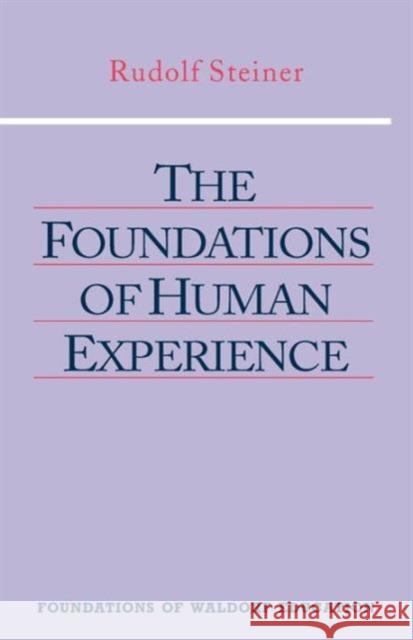The Foundations of Human Experience » książka
topmenu
The Foundations of Human Experience
ISBN-13: 9780880103923 / Angielski / Miękka / 1996 / 348 str.
Opening address, Stuttgart, August 20, 1919
14 lectures, Stuttgart, August 21-September 5, 1919 (CW 293)
2 lectures, Berlin, March 15 and 17, 1917 (CW 66)











